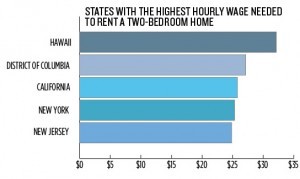Go Lean Commentary
Is this standard still valid (as reported in a previous commentary)?
The United States of America presents itself as the “City on the Hill“, the richest, most powerful model democracy in the history of the world. But this country has some societal defects – i.e. Institutional Racism & Crony-Capitalism – that are so acute that they distort the American reality as a Great Society. …
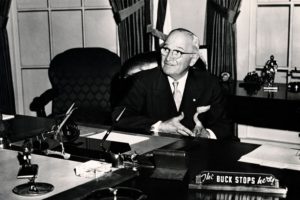 In addition to the country presenting itself as a model democracy, the Chief Government official in the US, the President of the United States (POTUS) is considered the “Leader of the Free World” – this has been the association ever since the start of the Cold War (early 1950’s)..
In addition to the country presenting itself as a model democracy, the Chief Government official in the US, the President of the United States (POTUS) is considered the “Leader of the Free World” – this has been the association ever since the start of the Cold War (early 1950’s)..
This is a commentary about Leadership; and the urgent need for it during this Coronavirus-COVID-19 crisis. So can we look to American entities as good examples of Good Leadership?
Yes and No … and Yes.
Yes
The good example of America is its “kinetics in evolution”, not the snapshot it presents to the world. The country is always trying to get better, always evolving. This used to be the defined characteristic of America:
- White
- Rich
- Straight and able-bodied.
… but now today, so many other definitions of Americans have emerged and have been empowered. Think: minorities, women, LGBT, disability-challenged, etc..
No
The current POTUS – Donald Trump – is not to be credited as the “Leader of the Free World”. He has not provided a good example of Good Leadership. He is not ready, willing nor able. This is not our opinion alone; see this portrayal here:
Title: COVID-19 further confirms: The position of ‘Leader of the Free World’ is vacant
On Aug. 8, 1990, President George H.W. Bush gave a rare Oval Office address announcing America’s response to Iraq’s invasion of Kuwait just days earlier. In the days leading up to the speech, Bush had worked tirelessly with his national security team to build a coalition of nearly 40 leading nations to condemn Iraq’s illegal invasion and to build support behind the critical UN Security Council Resolutions that fall.
In the speech, President Bush made special mention of his administration’s work to rally the world, “We are working around the clock to deter Iraqi aggression and to enforce U.N. sanctions. I’m continuing my conversations with world leaders. Secretary of Defense Cheney has just returned from valuable consultations with President Mubarak of Egypt and King Hassan of Morocco. Secretary of State Baker has consulted with his counterparts in many nations, including the Soviet Union, and today he heads for Europe to consult with President Ozal of Turkey, a staunch friend of the United States.”
Nearly 40 countries would contribute troops, weapons, and resources to the effort that would become Operation Desert Storm. In one of the shortest wars of the 20th Century, coalition forces overwhelmed Iraq’s military, and — just one hundred hours after the ground campaign started — President Bush declared a ceasefire to active hostilities.
That was 30 years ago. Today the world is facing an even more dangerous foe than Saddam Hussein and his Republican Guard. COVID-19 is a global pandemic that has wreaked havoc on both the health infrastructures and economies of every leading nation.This is a global crisis that will have generational ramifications.
Unlike his predecessors, who united the countries of the world against a common enemy, President Donald Trump has taken an inward, nativist approach in his speeches and actions. Writing in Foreign Affairs, former Under Secretary of State Nicholas Burns noted Trump’s lack of international outreach. “Beyond individual phone calls with world leaders, he has made just one attempt to organize countries to band together — a single conference call with European, Canadian, and Japanese leaders in the G-7 forum he currently chairs.”
Whether President Trump likes it — or even comprehends our role in the world — the United States is the last and only indispensable nation when it comes to a global response to a global problem.
Before the COVID-19 pandemic, China was on a course for rising economic parity with the United States on the world stage, but not now — at least in the short term. We have no idea how this pandemic will reshape the international economic order in the coming months and years, but China’s rise will likely continue. Right now, however, the United States enjoys a singular, unique and leading role in international affairs, and Trump is actively redefining and expanding the notion of “leading from behind.”
More than 39,000 people have died from the COVID-19 virus worldwide, and nearly one million have contracted the disease around the globe. This is a human tragedy, and we cannot understate the profound sadness at the loss of life as a result of this deadly pandemic. The economic ramifications are devastating as well. This past week, a record 3.3 million Americans filed for unemployment benefits according to the Labor Department, making it the largest surge in benefit applications in American history. According to the Washington Post, “many economists say this is the beginning of a massive spike in unemployment that could result in over 40 million Americans losing their jobs by April.”Perhaps the clearest recent example of a similar global economic calamity occurred during the 2008/2009 financial crisis, bridging both the end of the Bush Presidency and the start of the Obama Presidency. Both leaders and administrations recognized the need for American leadership on the world’s stage to reassure international markets and stem financial loses. As former Under Secretary Burns noted, “Both Bush and Obama understood that the United States, with all its power and immense credibility, had to lead if the world was going to prevent the Great Recession from becoming a Great Depression.”
During this COVID-19 pandemic, America’s credibility is being tested as never before. In direct contradiction to the very tone and message of President Bush’s speech 30 years ago addressing the invasion of Kuwait, President Trump spoke from the same Oval Office on March 11. Rather than speaking as the leader of the world’s only indispensable nation, Trump’s nativist tone called the European Union’s response to the pandemic a “failure” and sought to boast about America having “the greatest economy anywhere in the world by far.”
Historians differ on the origins of the phrase “Leader of the Free World,” but it is widely accepted that its use as a colloquialism for the president first started during the early years of the Cold War. Since the end of the Second World War, presidents of both parties have assumed the tremendous domestic and international mantle of leadership, with varying degrees of success, but always united in the primacy of the United States on the world’s stage.
The “free world” is desperate for American leadership during this global pandemic, but unfortunately for them — and us — that position is vacant.
Kevin Walling (@kevinpwalling) is a Democratic strategist, Vice President at HGCreative, co-founder of Celtic Strategies, and a regular guest on Fox News and Fox Business and Bloomberg TV and Radio.
Source: The Hill; posted March 30, 2020; retrieved May 30, 2020 from: https://thehill.com/opinion/white-house/490313-covid-19-has-further-confirmed-the-position-of-leader-of-the-free-world
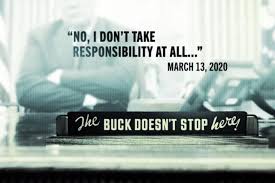
Yes
A previous POTUS – Jimmie Carter – was/is a great example for “Leader of the Free World”. Consider this portrayal here:
Title: Former President Jimmy Carter Just Made a Solar Farm to Power Half His City
Sub-title: This is one action taken by one man…and it’s powering half a town.
By: Christianna ReedySteady Solar Supporter
In 1979, in the throes of the U.S. energy crisis, then President Jimmy Carter addressed the nation as he installed 32 solar panels designed to use the Sun’s energy to heat water. He told the country, “A generation from now, this solar heater can either be a curiosity, a museum piece, an example of a road not taken, or it can be just a small part of one of the greatest and most exciting adventures ever undertaken by the American people.”
Former President Carter’s vision for clean, renewable energy proved to be far ahead of his time.
While his successor, former President Ronald Reagan, had the panels removed, Carter and his family have continued their work toward ensuring that those 32 panels became a part of a much bigger story.
Carter leased 10 acres of land in his hometown of Plains, Georgia, to be used as a solar farm. This February, the solar development firm SolAmerica finally completed the project, which will have the capacity to meet more than half of the town’s energy needs.
This is, in essence, one action taken by one man…and it is powering half a town.
Then, in June of this year, the Carter family had 324 solar panels installed on the Jimmy Carter Presidential Library, which will provide about seven percent of the library’s power.
The Power Of People
“Distributed, clean energy generation is critical to meeting growing energy needs around the world while fighting the effects of climate change,” Carter said in a SolAmerica press release. “I am encouraged by the tremendous progress that solar and other clean energy solutions have made in recent years and expect those trends to continue.”
Carter’s continued activism in support of renewables showcases the importance of local and individual efforts to reduce humanity’s reliance on fossil fuels, even in the absence of strong national initiatives.
We, the people, have power.
The solar farm in Plains is expected to generate 1.3 MW of power per year, which is equal to burning about 3,600 tons of coal. Over time, that will prevent a sizable amount of greenhouse gases from being emitted into our atmosphere.
Many individuals, communities, and even states are joining with Carter in working toward shifting to clean energy sources. Elon Musk, CEO of Tesla, has invested in developing technology and products that are making solar energy cheaper than ever before. The U.S. states of New York, California, and Washington have banded together to form the “United States Climate Alliance” after President Donald Trump announced the country would pull out of the Paris Climate Accord.
These are just a few examples of people and communities who are working towards a sustainable future. And their work is bearing fruit — the construction of coal power plants is declining worldwide, and a new report projects that the U.S. will exceed its Paris Accord goals despite the recent withdraw. Regardless of the opposition, people around the world are choosing to embark on exciting adventure to a bright, renewable (and clean) tomorrow.
The future is looking bright.
Source: Posted July 11, 2017; retrieved May 26, 2020 from https://futurism.com/former-president-jimmy-carter-just-made-a-solar-farm-to-power-half-his-city
VIDEO – Jimmy Carter’s Hometown Turns to Sun for Power – https://youtu.be/5-7SJ7Uz6xs
Associated Press
Posted February 9, 2017 – Plains, Georgia, the hometown of President Jimmy Carter, is turning to the sun for power. Solar panels installed on Carter’s farmland are generating enough power to supply half of energy used in Plains. (Feb. 9)Subscribe for more Breaking News: http://smarturl.it/AssociatedPress Get updates and more Breaking News here: http://smarturl.it/APBreakingNews
The Associated Press is the essential global news network, delivering fast, unbiased news from every corner of the world to all media platforms and formats. AP’s commitment to independent, comprehensive journalism has deep roots. Founded in 1846, AP has covered all the major news events of the past 165 years, providing high-quality, informed reporting of everything from wars and elections to championship games and royal weddings. AP is the largest and most trusted source of independent news and information.
Today, AP employs the latest technology to collect and distribute content – we have daily uploads covering the latest and breaking news in the world of politics, sport and entertainment. Join us in a conversation about world events, the newsgathering process or whatever aspect of the news universe you find interesting or important.
Subscribe: http://smarturl.it/AssociatedPress http://www.ap.org/
https://www.facebook.com/APNews
- Category: News & Politics
This is the continuation of a Teaching Series on Good Leadership from the movement behind the 2013 book Go Lean…Caribbean; this is entry 5 of 6, which portrays samples and examples of Good Leadership. This entry specifically considers the President of the United States. The full catalog for this month’s series is listed as follows:
- Good Leadership – Inaction could be deadly
- Good Leadership – Caring builds trust; trust builds caring
- Good Leadership – Agile: Next Generation of leadership and project delivery
- Good Leadership – Hypocrisy cancels out Law-and-Order
- Good Leadership – Example – “Leader of the Free World”?
- Good Leadership – Example – For mitigating crime
For the 30 member-states of the Caribbean, we have no voice nor vote for the Office of the American Presidency; this disposition is even true for Puerto Rico and the US Virgin Islands. Too bad, as we really need a selection of Good Leadership to emanate from that Office. There are no Ands, Ifs or Buts, with the current Coronavirus-COVID-19 crisis, Good Leadership would do a better job of managing such a crisis. We saw it before – GW Bush with SARS in 2003, GW Bush & Barack Obama with H1N1 in 2008/2009 and Obama with Ebola in 2014.
The historicity of this crisis is that Donald Trump came along, threw out the Pandemic Playbook (that was developed by Bush & Obama) and then didn’t have a plan at all. As related in the first entry in this 6-part series, his inaction caused thousands of deaths.
Sad!
Also, consider this sample of previous commentaries relating the inadequacies of the American hegemony on the Caribbean actuality. These show that we are both powerless and parasitic – poor us! See the sample list here:
| https://goleancaribbean.com/blog/?p=18770 | Christian Journal Urges: ‘Remove Trump; he is not a Good Leader’ |
| https://goleancaribbean.com/blog/?p=18438 | Refuse to Lose – Despite American Expansionism |
| https://goleancaribbean.com/blog/?p=13746 | American Mirage for a Caribbean Basin Security |
| https://goleancaribbean.com/blog/?p=17135 | Way Forward – Puerto Rico: Learns its true status with America |
| https://goleancaribbean.com/blog/?p=12468 | State of the Union: Self-Interest of ‘Americana’ |
| https://goleancaribbean.com/blog/?p=12380 | A Lesson in History – ‘4th of July’ and Slavery |
| https://goleancaribbean.com/blog/?p=10895 | Trump’s Vision of the Caribbean: Yawn – He doesn’t care |
| https://goleancaribbean.com/blog/?p=8099 | Caribbean Image to America: ‘Less Than’? |
| https://goleancaribbean.com/blog/?p=5353 | POTUS and the Internet and the Caribbean |
| https://goleancaribbean.com/blog/?p=4551 | US Territories – Between a ‘rock and a hard place’ |
In a previous entry of this series – 2 of 6 – for May 2020 – Good Leadership #2: Caring builds trust; trust builds caring – it was stressed how important “Trust” is:
Trust is very important for forging Good Leadership. Subjects must feel that they can trust their leaders, that the leaders care and would only have their best interest at heart. So actions of caring and trust are inter-related.
So the actual subjects and citizens of American leadership feel dismay emanating from the Office of the POTUS; they cannot Trust the current occupant – how much more for us in the Caribbean. Surely, you accept that “blood is thicker than water”.
This sad reality was actualized in April 2020 when this POTUS blocked the shipment of necessary PPE (Personal Protection Equipment) to Caribbean nations that had been bought and paid for them, to ensure all domestic needs were fulfilled before accommodating foreign requests – as a candidate in 2015/2016, Donald Trump did advocate for “America First”.
A previous POTUS – Harry Truman (1945 to 1957) – lived by the rule that the “buck stops here”.
Buck passing, or passing the buck, or sometimes the blame game, is the act of attributing to another person or group one’s own responsibility. It is often used to refer to a strategy in power politics whereby a state tries to get another state to deter or fight an aggressor state while it remains on the sidelines. Wikipedia
Truman recognized, acknowledged and accepted that the responsibility to protect the American people – and other allied nations – rests with him. How we miss that kind of Good Leadership!
No doubt, our Caribbean region needs our own Good Leadership. We cannot trust any POTUS, benevolent or malevolent, to look after us – we must Grow-up already!
In summary, Good Leadership is an Art and a Science. At a bare minimum, we must pursue the associated best practices ourselves rather than looking for someone else to pursue our best interest for us. Freedom is not free! We must pay the price ourselves to live, work and play in this “Free World”.
We want to be a protégé, not a parasite of the United States of America. The “buck stops here” – Grow Up Already!
We hereby urge all Caribbean stakeholders – even the ones in the Caribbean American territories – to lean-in to this Go Lean roadmap. We must make the efforts ourselves to make our homeland a better place to live, work and play. 🙂
About the Book
The book Go Lean…Caribbean serves as a roadmap for the introduction and implementation of the technocratic Caribbean Union Trade Federation (CU), for the elevation of Caribbean society – for all member-states. This CU/Go Lean roadmap has these 3 prime directives:
- Optimization of the economic engines in order to grow the regional economy to $800 Billion & create 2.2 million new jobs.
- Establishment of a security apparatus to ensure public safety and protect the resultant economic engines.
- Improve Caribbean governance to support these engines, including a separation-of-powers between the member-states and CU federal agencies.
The Go Lean book provides 370-pages of turn-by-turn instructions on “how” to adopt new community ethos, plus the strategies, tactics, implementations and advocacies to execute so as to reboot, reform and transform the societal engines of Caribbean society.
Download the free e-Book of Go Lean … Caribbean – now!
Who We Are
The movement behind the Go Lean book – a non-partisan, apolitical, religiously-neutral Community Development Foundation chartered for the purpose of empowering and re-booting economic engines – stresses that reforming and transforming the Caribbean societal engines must be a regional pursuit. This was an early motivation for the roadmap, as pronounced in the opening Declaration of Interdependence (Pages 11 – 13):
xi. Whereas all men are entitled to the benefits of good governance in a free society, “new guards” must be enacted to dissuade the emergence of incompetence, corruption, nepotism and cronyism at the peril of the people’s best interest. The Federation must guarantee the executions of a social contract between government and the governed.
xvi. Whereas security of our homeland is inextricably linked to prosperity of the homeland, the economic and security interest of the region needs to be aligned under the same governance. Since economic crimes … can imperil the functioning of the wheels of commerce for all the citizenry, the accedence of this Federation must equip the security apparatus with the tools and techniques for predictive and proactive interdictions.
xxiv. Whereas a free market economy can be induced and spurred for continuous progress, the Federation must install the controls to better manage aspects of the economy: jobs, inflation, savings rate, investments and other economic principles. Thereby attracting direct foreign investment because of the stability and vibrancy of our economy.
Sign the petition to lean-in for this roadmap for the Caribbean Union Trade Federation.

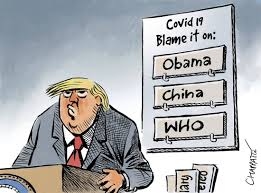
 Notwithstanding indigenous Amerindian cultures, the Caribbean represents the oldest civilizations in the New World. Columbus made his New World discovery here in the Caribbean:
Notwithstanding indigenous Amerindian cultures, the Caribbean represents the oldest civilizations in the New World. Columbus made his New World discovery here in the Caribbean: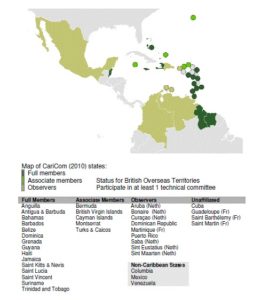

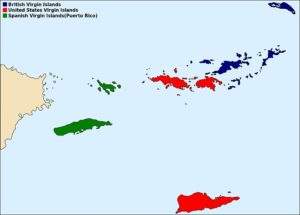
 … it is the assessment of this commentary that Independence is so overrated; rather than the independence, the call is for interdependence. A model of this desired interdependence is the inter-state cooperation in the European Union (EU).
… it is the assessment of this commentary that Independence is so overrated; rather than the independence, the call is for interdependence. A model of this desired interdependence is the inter-state cooperation in the European Union (EU).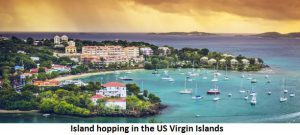 The US Virgin Islands – St. Thomas, St. Croix and St. Johns – are 80 miles east of Puerto Rico. Their small population only peaks at about 110,000; they have a lot of challenges sustaining and elevating their society. If only their economy was bigger.
The US Virgin Islands – St. Thomas, St. Croix and St. Johns – are 80 miles east of Puerto Rico. Their small population only peaks at about 110,000; they have a lot of challenges sustaining and elevating their society. If only their economy was bigger.

 All of these commentaries relate to “how” the Caribbean can finally get started with adapting the organizational structures to optimize the region’s societal engines. The Caribbean is in North America and the US is the Big Dog of the region. So any consideration for leading from the Top must partner with American stakeholders. Though these considerations only apply to the 2 US territories, there are lessons for all the Caribbean, as we can glean wisdom and insight on how a roadmap can reform and transform the Caribbean member-states so that they can be better places to live, work and play.
All of these commentaries relate to “how” the Caribbean can finally get started with adapting the organizational structures to optimize the region’s societal engines. The Caribbean is in North America and the US is the Big Dog of the region. So any consideration for leading from the Top must partner with American stakeholders. Though these considerations only apply to the 2 US territories, there are lessons for all the Caribbean, as we can glean wisdom and insight on how a roadmap can reform and transform the Caribbean member-states so that they can be better places to live, work and play.












